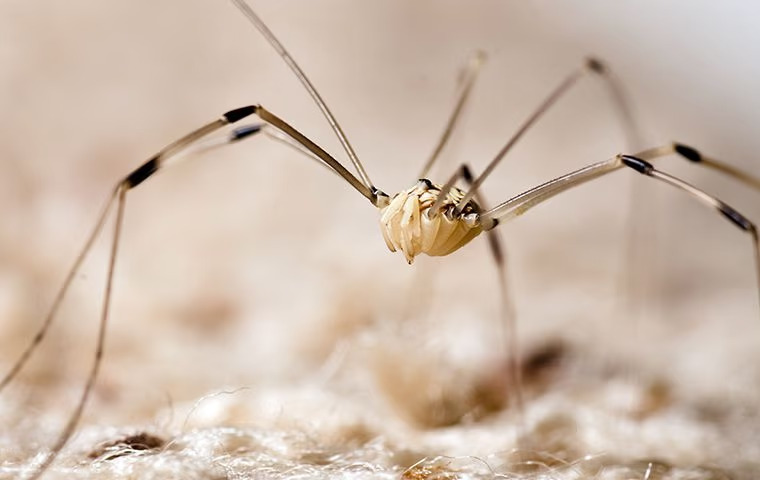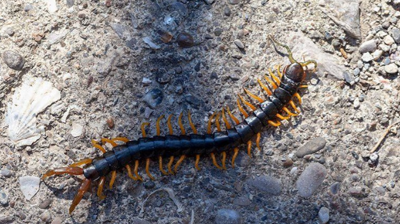Guarding Your Longview Residence Against Spiders: Prevention Essentials

Beware, arachnid architects are lurking! Addressing the challenge of spider control in Longview begins with understanding the eight-legged invaders that may be sharing your home. This comprehensive guide will serve as your go-to resource for identifying and learning about different spider species that inhabit Longview, investigating the reasons behind their unwelcome invasion into our personal spaces, and providing eco-friendly preventative measures to protect your haven.
Together, we'll make your residence unappealing to these unwelcome guests and explore safe eradication methods if professional intervention is needed. So brace yourself for an informative journey into the world of spiders, where knowledge is your most powerful weapon against these arachnid adversaries. The battle begins here!
Spider Identification: How To Recognize Different Species
Identifying spiders can be difficult but possible with a bit of practice. Tackling Texas spiders requires a good understanding of the different species that might call your home their sanctuary. Let's start by addressing the most common residential spiders in Texas.
The Brown Recluse
The brown recluse has a distinguishable violin-shaped mark on the cephalothorax and prefers dark, isolated places. This spider is of particular concern due to its venomous bite, making it essential to identify accurately.
The Black Widow
Another venomous species, the black widow, is instantly recognizable by its glossy black body and distinctive red hourglass mark on the abdomen. It likes to dwell in sheltered, undisturbed spots such as garages and woodpiles.
Southern House Spider
Many often mistake the male southern house spider for the brown recluse due to the similar color. Unlike the brown recluse, its body is elongated and lacks the distinct violin-shaped marking.
Wolf Spiders
Wolf spiders are robust and agile hunters easily identified by their hairy bodies and eye patterns, which form three rows. These spiders are often sprinting across the ground in search of their prey.
Jumping Spiders
These small, furry spiders may look cute with their big eyes, but don't let them fool you! They exhibit unusual attention to human behavior and can leap up to fifty times their body length.
Orb Weavers
Orb weavers are the artists of the spider community. Their elaborate, circular webs that sparkle in the morning dew are a classic of autumn mornings. Most orb weavers are harmless to humans.
Yellow Sac Spiders
Often found in homes, the yellow sac spider is pale in color and harbors a venomous bite. They are usually found in rolled leaves or under loose bark.
Remember, while there are thousands of Texas spiders, only a few can potentially harm humans. Most are beneficial, feeding on pests like mosquitoes and grasshoppers. Identifying these species is the first step towards effective spider control in your home. Knowing how to recognize these species can provide peace of mind and guide your next steps, whether calmly ignoring your eight-legged guest or contacting a professional pest control service for help.
Knowledge truly is power when it comes to managing our relationship with these fascinating yet often misunderstood creatures in Longview and surrounding areas.
Why Spiders Invade Homes
A question that's entered our minds before is, why do spiders invade our homes? Unraveling this enigma is another important piece in the complex puzzle of spider control. Common household spiders typically seek one of three essentials—food, shelter, or a mate.
Seeking Food: As predators, spiders are constantly on the hunt for their next meal. A home with plenty of insects and other small bugs provides a grand buffet for these eight-legged predators. Simply put, if you have other pests residing in your home, it's like an open invitation to spiders. If you notice an increase in the spider population in your home, chances are you might have an underlying pest issue.
In Search of Shelter: Spiders aren't just looking for a good meal; they need a roof over their heads, too. Your home provides plenty of cozy nooks and crannies perfect for spiders to settle down and weave their webs. Corners, crevices, attics, or basements are often their go-to spots, offering secluded, undisturbed places for them to reside. Furthermore, these areas are often warmer and remain at a constant temperature, providing an ideal environment for spiders.
It's Mating Season: Spiders don't just invade our homes for practical reasons; they sometimes do so in the name of love. Certain species of spiders, like the giant house spider, are known to wander into homes in search of a mate, particularly during fall, which happens to be their breeding season.
While making your home entirely spider-resistant is almost impossible, understanding why spiders choose to invade can help you anticipate their arrival and minimize the risk.
However, remember that the presence of spiders is typically an indicator of a healthy ecosystem, given their role as pest controllers. However, when the spider population in your home appears out of balance, it is time for you to reclaim your territory. Achieving a harmonious coexistence with these eight-legged architects is the key to successful household pest management.
Six Environmentally-Friendly Spider Prevention Tips
Now that you've learned about the different species and why spiders invade homes let's explore how you can deter these eight-legged visitors in an eco-friendly manner. Here are six practical steps to discourage all types of spiders from calling your house their home without resorting to harmful products or aggressive treatments:
- Keep Your Home Clean: Regular cleaning discourages spiders from setting up shop. Vacuuming, dusting, and decluttering reduce potential hiding spots, discouraging them from settling down.
- Make Repairs: Broken window screens, gaps under doors, or cracks and crevices in walls are often the unguarded entryways for spiders. Seal these entrances to stop spiders from invading.
- Manage Lighting: Insects, and consequently spiders, are attracted to light. Using yellow sodium vapor light bulbs outdoors can reduce the number of bugs that gather near your house and, thus, the spiders that follow.
- Maintain Your Garden: Keep vegetation, compost, and woodpiles away from your house. They are desirable habitats for spiders. Regular trimming of hedges and shrubs can discourage spiders from building their webs.
- Use Natural Repellents: Certain natural substances are known to repel spiders. Some examples are essential oils such as peppermint, lavender, tea tree, eucalyptus, and vinegar. Mix these with water and apply them around your house for a non-toxic spider deterrent.
- Allow Nature to Run Its Course: Most importantly, remember that spiders are a part of our ecological system. They control insects and help maintain balance in our environment. Consider fostering natural spider predators, such as birds, in your garden.
These tips won't necessarily always prevent spiders in your home; however, implementing them can significantly reduce the spider population around your house to a manageable level, ensuring a harmonious coexistence with these arachnids.
Remember, the key to effective spider control lies in understanding and respecting these creatures, recognizing their role in the ecosystem while ensuring they don't overstep the boundaries within our homes. With these eco-friendly prevention tips, you are now better equipped to manage household spiders safely and without harm.
Professional Spider Removal: Safe And Effective Eradication
Despite best efforts, home remedies and preventative measures sometimes fall short in managing a substantial spider population. In such situations, it might be time to consider seeking professional assistance. Let's explore the benefits of professional spider control to better understand how it can bring about safe and effective eradication:
- Expertise: Professional pest control providers apply their expert knowledge of spider behavior to devise target-specific control measures. They can accurately identify the spider species, understand their habits, and strategize their removal methodically.
- Comprehensive Treatment: Professionals don't just eliminate spiders; they investigate the root cause of the invasion. They offer a more comprehensive, lasting solution by addressing the underlying problem, like a hidden food source or undisclosed entry points.
- Safe and Correct Use of Products: Professional pest control providers have access to a range of products, some of which are unavailable to the public. They have the necessary training to use these products safely and correctly, ensuring minimal disruption to your home's ecosystem and the health of your family and pets.
- Regular Follow-ups and Monitoring: Most reputable pest control companies offer regular follow-ups and monitoring services to keep the spider situation in check, ensuring the problem does not recur.
- Peace of Mind: Last but definitely not least, hiring a professional offers you peace of mind. You can rest assured that your home is in skilled hands and they are handling the spider situation effectively and safely.
With all that considered, remember that while managing an occasional arachnid is part of our coexistence with nature, dealing with a significant spider problem may need expert intervention.
If you've reached a point where your spider situation is becoming overwhelming, don't despair! Consider reaching out to a reliable local spider removal service. At Gecko Pest Control, we have a team of trained professionals adept at handling spider invasions. Our approach to spider removal is ecological, safe, and effective.
Contact Gecko Pest Control today; make your home a spider-free haven while preserving the balance of our shared ecosystem.
What Our Customers Are Saying
-
“Gecko is the best pest control company I have used”- Philip J.
-
“Excellent work and does amazing with our animals, who like to join him as he takes care of our home!”- Cagney C.
-
“My neighbor and I had a pest problem found gecko pest control. Reviews looked good so decided to check them out and they came out the following day.”- Seth C.
-
“He is funny, professional, and personable.”- Rosa E.
-
“So down to earth and you can definitely tell he loves people and what he does!”- Latasha H.
-
“Landen does a great job handling any of our needs or concerns.”- Sean G.
-
“If you're looking for a reliable pest control service, these guys will get you fixed up in no time.”- Ray C.
-
“Enjoy his company, and his professionalism.”- Mary M.







